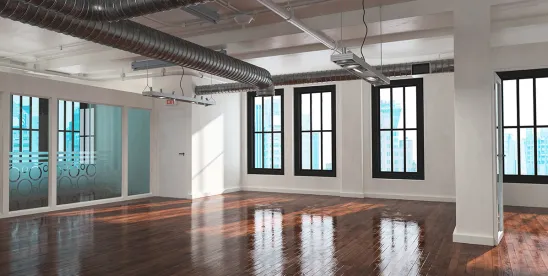The COVID-19 pandemic has made many companies reconsider their use of space, and left others unsure of future space plans. Some have turned to subleasing space, to avoid making any long term plans in uncertain times.
If you’re a subtenant, there are some practical issues to consider as you negotiate your sublease, to minimize your liability exposure and avoid conflicts during the sublease term. The following are a few issues to consider:
-
What is your expectation about the sublandlord’s ability to terminate the master lease? Many sublandlord form subleases give a sublandlord the ability to terminate their master lease for any reason at any time if the opportunity for doing so arises, which would leave a subtenant with a terminated sublease at the same time. If you expect to get the benefit for your sublease for the entirety of the remaining master lease term, be sure to be clear that the sublandlord cannot terminate the master lease. You should also have the sublandlord indemnify you in the event of any termination of the master lease that they permit or cause to occur.
-
Do you plan to use any furniture and equipment belonging to the sublandlord? If so, consider whether you will be expected to insure it and replace it in the event of any casualty or breakage. Consider what happens to the items at the end of the term—do you get title to these assets and are required to remove them, or will you be leaving them behind?
-
Be sure to ask for the benefit of any rental abatements that sublandlord is entitled to under the master lease, for example, in cases of utility interruption. Consider whether you also want to get the benefit of any termination rights granted to sublandlord under the master lease, for example, in casualty situations.
-
If you don’t plan to make any alterations in the premises, make sure that the sublandlord is responsible for delivering the space in compliance with all laws. If you do plan to make alterations, confirm with your architect whether the space will need to be improved to comply with any legal requirements beyond your planned alterations.
-
Parking can be a challenge, depending on your location. Be detailed about the parking rights you intend to inherit from the master lease.
-
If you plan to put up signage on the building, do not assume that your sublandlord’s signage rights immediately transfer to you. Often, those rights are specific only to your sublandlord and you will need to negotiate with master landlord in order to erect your sign.
Subtenants often do not read the master lease, but they should. The master lease is generally incorporated into the sublease and with few exceptions (like the rent you pay) must be observed by the subtenant. Although it is important to familiarize yourself with all of the master lease’s terms, there are a number of items to confirm as you read the master lease because they can greatly impact your tenancy: does master landlord have any early termination rights? Does the master landlord have any rights to relocate the tenant? What consent rights does the master landlord have for alterations in the premises and does it charge any construction management fees for improvements (this is of particular import if a subtenant intends to make any alterations)? Since your sublease is likely to state that you will perform all obligations of “tenant” set forth in the master lease, be sure to carve out those obligations which do not apply, such as the rent provisions and any security deposit terms in the master lease. If the master lease gives the master landlord the right to recapture any space that is subleased, you may be negotiating a sublease for nothing if the master landlord exercises its recapture rights. Request that sublandlord seek master landlord consent sooner rather than later to make sure you are not wasting your time.
Lastly, do not forget that the master landlord consent document also needs to be reviewed for important terms. Make sure that it does not have you acknowledging that you will be “assuming” the master lease, which is a different legal concept than a sublease. If you plan to make any alterations, have the master landlord acknowledge or approve that work in the consent document, along with approving any signage you plan to put up. Ask the master landlord to certify that your sublandlord is not in default under the master lease, and ask for a waiver of subrogation from the master landlord, just like the one usually granted under the master lease to the tenant.




 />i
/>i

